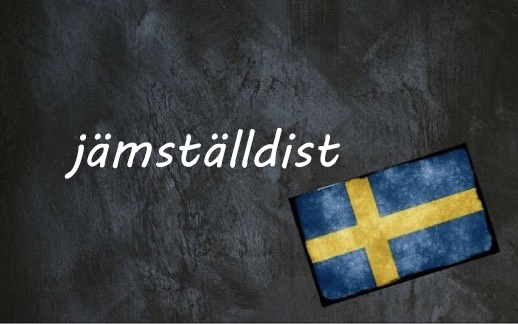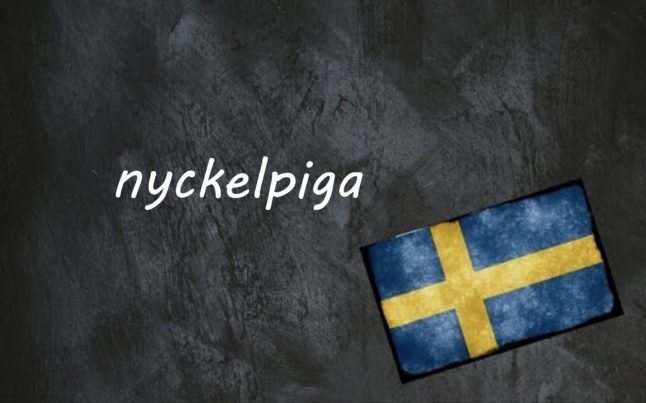Jämställdhet means ‘gender equality’ in Swedish. But the derived term jämställdist, confusingly enough, can mean either someone who is for gender equality or someone who is pretending to be for gender equality, depending on who you ask.
As you might now, the term ‘feminist’ encompasses quite a few different takes on what feminism or gender equality really means and how society should go about achieving that goal. Among them are a group who use jämställdist for people (generally men) who they say claim to be for gender equality, but really are not. Then there are those who call themselves jämställdist, who say that they are for gender equality, but that modern feminism does not mean ‘gender equality’, but rather ‘hatred of men’ or ‘female superiority’ or similar things. They say they call themselves jämställdister to distinguish themselves from ‘feminists’ and ‘masculinister’, which according to them is the male version of ‘feminist’.
If you are not already aware, Sweden is a super progressive country. In the World Value Surveys cultural map, it is the country in the top right corner when sorting for “traditional values versus secular-rational values and survival values versus self-expression values”. That basically means it is very non-traditional and very individualistically oriented. Which usually equates to very progressive.
Sweden is in fact so progressively minded that people from its very progressive neighbours Denmark, Norway, and Finland make fun of Swedes when it comes to many social issues. They believe that Swedes have gone too far, and many Swedes express similar feelings.
When it comes to feminism this push back can perhaps be seen in the rise and fall of the number of men calling themselves feminists in Sweden. In 2014 the Swedish election was won by the first Löfven government which styled itself as ‘Sweden’s first feminist government’, riding on a wave of pro-feminist sentiment in the country. That same year a survey was conducted by SvD/Sifo which among other things looked into how many men over 30 called themselves ‘feminist’. The figure was 50 percent. In 2018, the same survey revealed that the number had fallen to 25 percent.
Are fewer men in Sweden today in favour of gender equality, or are fewer able to identify with the recent developments in feminism? Are they jämställdister or jämställdister? Who can say?
What is clear is that jämställdist is not generally used as positive, so be mindful of using it to describe others, or even yourself, in polite company. A better way of using the word might be to start up a conversation about what your friends think is the difference between ‘feminist’ and ‘jämställdist’.
But again, be careful. The debate about gender equality in Sweden can be a minefield. Best of luck!
Example sentences:
Jag är inte ‘feminist’, jag är jämställdist, det finns en skillnad.
I’m not a ‘feminist’, I’m a gender equalist, there is a difference.
Du är inte en sån där jämställdist väl?
You’re not one of those gender equalists, are you?
Villa, Volvo, Vovve: The Local’s Word Guide to Swedish Life, written by The Local’s journalists, is now available to order. Head to lysforlag.com/vvv to read more about it. It is also possible to buy your copy from Amazon US, Amazon UK, Bokus or Adlibris.



 Please whitelist us to continue reading.
Please whitelist us to continue reading.
Member comments